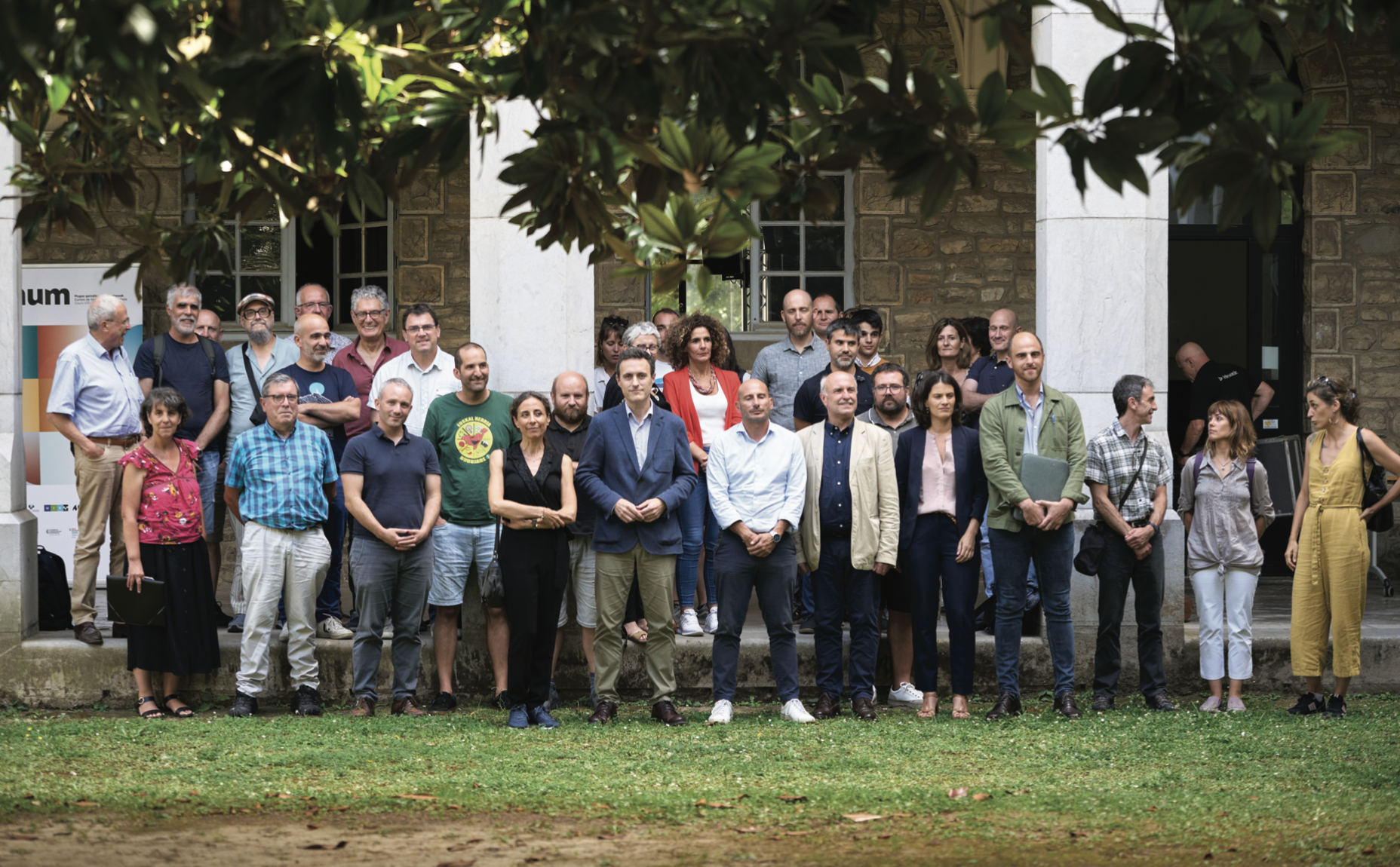Basque Coins reflect on the common cross-border instrument
- The Basque Currency has experienced great development in the Northern Basque Country in recent years. It has become the strongest local currency in Europe. Since its creation, the idea of extending it to Hego Euskal Herria was integrated into the project. The association of the Basque Currency has begun to work on the creation of a complementary local border currency, together with agents of Hego Euskal Herria. Cynthia Lamothe, member of the Euskal Moneta Directive Commission, answers the questions of Enbata.

Reflection: Where has the objective of developing the South come from?
Cynthia Lamothe: It should be remembered that in the creation of the association this possibility was integrated in writing in the statutes. It is true that in the first few years we aimed to implement and stabilize the project in the Northern Basque Country. But the idea of moving south has never been rejected.
A few years ago, with the COVID-19 pandemic, we did an analysis of the economic situation and thought it was a good time to create a common cross-border instrument. In the framework of the BIHAR training association and with the support of the Basque Country Elkargoa, the Comarca of New Aquitaine, the Provincial Council of Gipuzkoa and Udalbitza, a group of researchers and experts (Hemen, Bihar, MIK, Université de Bordeaux – CNRS, UPPA, UPNA) started a study.
But there is no doubt that the common cross-border instrument made sense and was worth exploring further. In this regard, we have set up a working group with representatives of different structures and have decided to take our idea further.
What are you today?
As I said, a first working group has entered into force to implement the project. It is unthinkable that the Basque experience can be repeated without changing anything. But it doesn't say that the Euskoa experience is a key element.
We have now put on the round table the house of the people of Baztan, the development agency Garalur, the cooperative Olatukoop and the Basque Currency. The common bases are agreed and we have decided to proceed with the creation of a job. We have asked for grants to some valuable participants and have responded positively. We are supported by local institutions such as the Government of Navarra, the Basque College, the Provincial Council of Gipuzkoa, Udalbiltza…
Following our planning, a job has been created and this spring a colleague will begin to develop this project with us.
What do we talk about geographically? Is it a project to be developed in the seven provinces?
It is premature to present it like this. At the moment our first objective is to promote pilot experiments in Donostialdea and Baztan. The first challenge will be to create a network of businesses and even citizens. We want to move forward step by step. In both territories we will have to see the reception of the project and we hope to move to a phase of use if the conditions have been met. According to the results of the experimental phase, of course, we have a simple headboard to extend the local currency to the whole of the South.

What is the work of the next few months?
It is important to build the necessary solid foundation. Therefore, an important phase of a year is now being opened in which we must identify all those agents who might have an interest in the project: private companies, institutions and public entities, development agencies, associations, citizens… They have to express and distribute their needs, obstacles, ideas, etc. to be able to carry out the project. Public meetings, communication and penetration work of Olatukop and Garalur will be prioritised in the coming months. The Basque Currency will be present as a collaborator or advisor. A local currency, as its name suggests, is a local project. The agents of the South will therefore invent the necessary instrument and create a currency that can respond to their economic and social reality.
When can Euskos be used throughout the Basque Country?
It is too early to answer this question. As you have understood, we are now moving from a phase of reflection to work on the ground. But we are still in the phase of characterization of the project and in the implementation of networks that make the project live in its day to day. All the agents we have contacted so far have seen the project with good eyes for us to be optimistic. But while it is important to be well received, the key steps still need to be overcome. To create the Basque Currency in the Northern Basque Country it took time over 10 years ago. It will also take a few years to see the first “Southern Basque Country” in accommodation, shops or services.
The Basque country has looked to the South, but it still has to do in Iparralde, right?
Yes, no doubt. We have known a great development since our foundation, but much remains to be done to promote the use of the Basque Country. Today, over 4 million Basques travel the continental Basque Country. We have great challenges in getting more and more people interested in Euskara. It is a good tool to promote the local economy, to promote its production and consumption. It should also be remembered that the Euskoa project is based on the ecological transition and development of the Basque country. All these values have a special relevance in the context we live in today. There is no doubt that the Basque Country is a tool for the future and that everyone can contribute to its development.
Larunbat honetan iraganen da Miarritzeko Surfrider fundazioan Eusko ekimenak antolatzen duen Elkarteen eguna. Lekuko moneta bat plantan ezartzearen parte bat elkarteei bideratzen die sistemak eta aurten ere, diruaren birbanaketa solidario horri esker, elkarte batzuk sarituak... [+]
Euskal Elkargoko Turismo Bulegoak eta Euskal Moneta elkarteak “Bakantzak euskoz” egitasmoa jarri dute martxan, helburu batekin: oporrak eusko moneta erabiliz igaro ahal izatea.






















